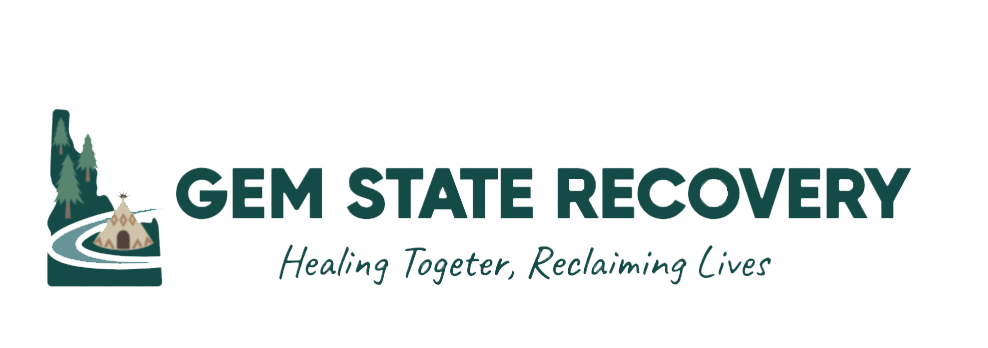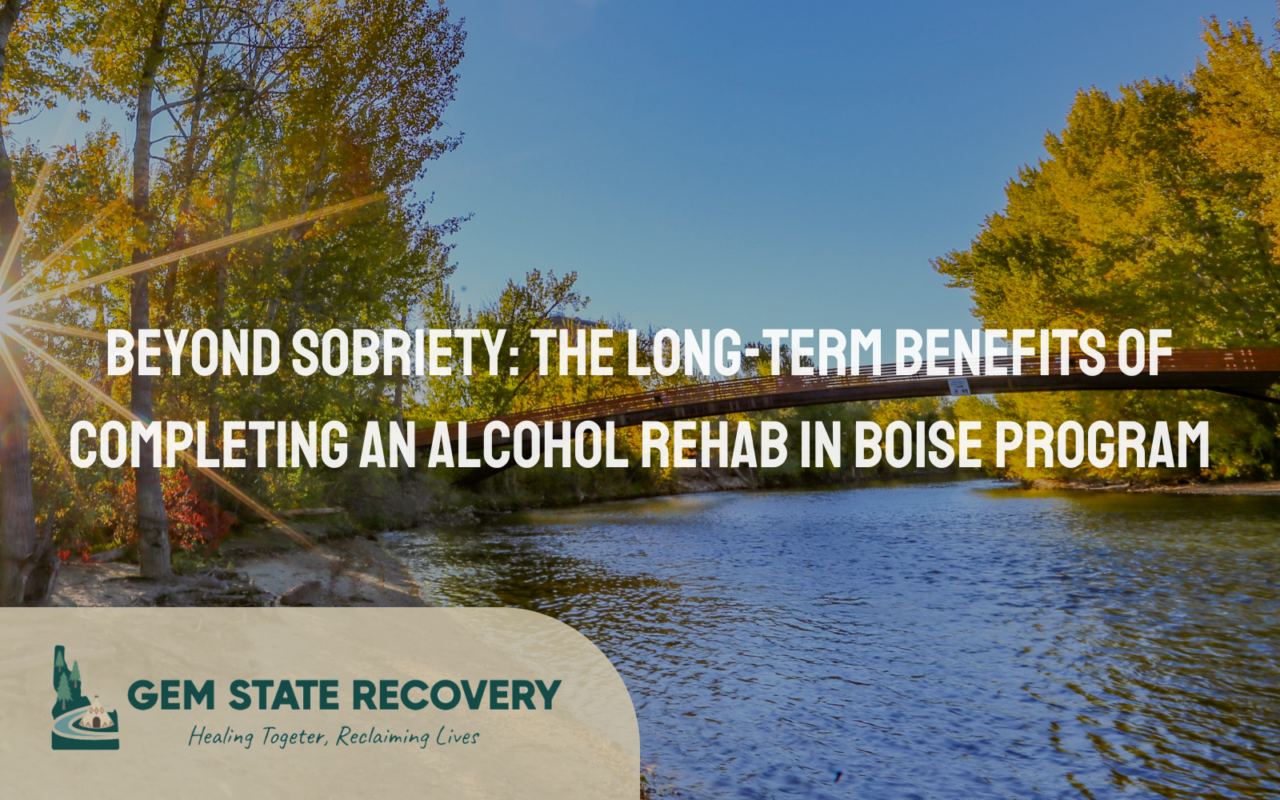Finding a way out of the clutches of alcohol addiction is no easy feat. It requires immense courage, determination, and support. For many, the path to true recovery begins with completing an alcohol rehab in Boise. This blog post is designed to shed light on the long-term benefits of completing an alcohol rehab program in Boise. Whether you’re a recovering alcoholic, a supportive friend or family member, or a healthcare professional, understanding these benefits can help guide you on this important journey.
Understanding Alcohol Addiction
Alcohol addiction, also known as alcohol use disorder (AUD), is a chronic condition characterized by an inability to control alcohol consumption despite its negative consequences. It develops over time and can have debilitating effects on individuals both physically and mentally. The physical toll includes liver damage, heart problems, and a weakened immune system. Psychologically, AUD can lead to depression, anxiety, and a host of other mental health issues.
Developing an understanding of how addiction works is essential for anyone involved in the recovery process. Recognizing that overcoming addiction requires ongoing support and effort is crucial. It’s not a battle won overnight but a continuous commitment to a healthier lifestyle. Those seeking help can find comprehensive treatment options and support at alcohol rehab in Boise.
Importance of Completing an Alcohol Rehab Program
Rehabilitation programs play a pivotal role in the recovery process. They provide the structure and support necessary to overcome the complex challenges of alcohol addiction. Various types of rehab programs are available, including inpatient and outpatient options, each tailored to meet different needs and circumstances.
Inpatient Rehab:
- A highly structured environment focusing solely on recovery without external distractions, ensuring patients can fully commit to their healing process.
- Combines medical supervision, personalized counseling, and peer support for a comprehensive, holistic approach to treatment.
- Provides a supportive community of individuals facing similar struggles, offering empowerment, motivation, and a sense of belonging.
- Minimizes the risk of relapse by providing immediate support and intervention during moments of crisis, ensuring patients have the tools they need to stay on track.
Outpatient Programs:
- Allows treatment while maintaining daily responsibilities (work, school, family), ensuring that individuals do not have to completely disrupt their lives to seek help.
- Includes scheduled therapy sessions, group meetings, and regular check-ins with healthcare professionals, providing a structured yet adaptable approach to recovery.
- Flexible and accessible for those unable to take extended time off, making it easier for individuals with demanding schedules to receive the support they need.
- Encourages the application of coping strategies in real-world settings for smoother transitions back into everyday life, helping individuals integrate these techniques into their daily routines effectively.
Both types of programs offer unique benefits, but the common thread is the supportive environment that fosters healing and growth. Whether one opts for the immersive nature of inpatient rehab or the flexibility of outpatient treatment, the goal remains the same: to provide the tools, resources, and community necessary for a successful recovery journey. Completing a rehab program, such as alcohol rehab in Boise, is a crucial step toward long-term sobriety and a healthier, more fulfilling life.
Long-Term Benefits of Completing an Alcohol Rehab Program
1. Achieving Long-Term Sobriety
One of the most significant benefits of completing an alcohol rehab in Boise is the increased likelihood of achieving long-term sobriety. Rehab programs equip individuals with the tools and coping mechanisms necessary to resist the urge to drink. Through therapy, education, and support, participants learn how to manage triggers and maintain their sobriety in the long run.
Therapy sessions, which can include individual, group, and family therapy, offer a safe space for individuals to explore the root causes of their addiction and develop healthy coping strategies. Educational components of rehab programs provide valuable information about the effects of alcohol on the body and mind, helping participants understand the importance of sobriety. Additionally, support from peers and counselors fosters a sense of community and accountability, which can be crucial for sustaining long-term recovery.
By addressing the physical, emotional, and psychological aspects of addiction, alcohol rehab in Boise programs create a comprehensive approach to recovery that significantly increases the chances of leading a sober and fulfilling life.
2. Improved Physical Health
Excessive alcohol consumption wreaks havoc on the body, affecting vital organs such as the liver, heart, and brain. By completing a comprehensive alcohol rehab in Boise, individuals can begin the healing process and restore their physical health. Proper nutrition, including a balanced diet rich in vitamins and minerals, plays a crucial role in rebuilding the body’s defenses. Regular exercise helps to strengthen the heart, improve circulation, and enhance overall fitness. Medical care, including regular check-ups and medication management, ensures that any underlying conditions are addressed and treated appropriately. Over time, individuals will notice significant improvements in their energy levels, immune system functionality, and overall well-being. Additionally, mental health support and counseling can aid in managing stress and preventing relapse, contributing to a holistic recovery.
3. Better Mental Health
Alcohol addiction often goes hand-in-hand with mental health issues such as anxiety, depression, and mood disorders, creating a complex web of challenges for individuals. Completing a comprehensive rehab program can lead to significant improvements in both physical health and mental well-being. These programs typically include a combination of medical treatment, therapy, and counseling, which are key elements of rehab. Therapy sessions delve into the underlying mental health issues, helping individuals understand the root causes of their addiction and providing strategies for managing them effectively. Counseling offers ongoing support and coping mechanisms that are essential for long-term recovery. This holistic approach ensures that individuals are not only sober but also mentally healthy, empowering them to lead fulfilling and balanced lives post-rehab. Additionally, the community and support network found in rehab can be crucial for maintaining sobriety and mental health, offering a sense of belonging and encouragement during the recovery journey.
4. Rebuilding Relationships
Alcohol addiction can strain relationships with family, friends, and loved ones. Trust may be broken, and communication can become challenging, often leading to misunderstandings and conflicts. The emotional and sometimes financial toll on these relationships can be significant. Completing a rehab program, such as alcohol rehab in Boise, provides individuals with the opportunity to rebuild relationships and repair any damage caused by their addiction. This process often includes understanding the root causes of their addiction and making amends where possible. Family therapy sessions and support groups are often part of the rehab process, helping to mend and strengthen bonds. These sessions provide a safe space for open dialogue, allowing loved ones to express their feelings and concerns, and for the individual in recovery to demonstrate their commitment to change. Through this comprehensive approach, individuals can work towards healthier, more supportive relationships as they journey towards sobriety.
5. Career Advancement
The impact of alcohol addiction extends to an individual’s professional life, often resulting in poor job performance, strained relationships with colleagues, and missed opportunities for advancement. The constant struggle to balance work responsibilities with the demands of addiction can lead to increased absenteeism, reduced productivity, and a tarnished professional reputation. By completing a comprehensive rehab program, individuals can regain their focus and significantly improve their work life.
Sobriety leads to increased productivity, better decision-making, and the potential for career advancement. The clarity and energy that come with overcoming addiction open doors to new opportunities and growth within the workplace. Employers often recognize the dedication it takes to complete rehab and may offer support through employee assistance programs, flexible work arrangements, and opportunities for further professional development. With a renewed sense of purpose and the right support, individuals in recovery can rebuild their careers and achieve long-term success.
6. Financial Stability
Alcohol addiction can lead to significant financial strain due to various factors like mounting medical bills, legal issues, and the ongoing cost of maintaining the addiction. These financial burdens can quickly spiral out of control, leading to debt and financial instability. However, completing a rehab program offers a path to regain control over one’s finances.
In rehab, individuals not only receive treatment for their addiction but also acquire valuable life skills. With a clear mind and improved decision-making abilities, they can create effective budgets, pay off accumulated debts, and work towards achieving financial stability. Financial counseling and support groups can provide additional guidance on managing money and rebuilding credit.
Sobriety opens the door to a more secure and prosperous future, allowing individuals to focus on their careers, invest in their education, or even start new ventures. By removing the financial drain of addiction, they can build a foundation for long-term success and stability.

Maintaining Long-Term Benefits
The road to recovery doesn’t end with the completion of a rehab program; it’s an ongoing process that requires continuous support and commitment. Aftercare programs and resources are essential for maintaining the long-term benefits of sobriety and preventing relapse. These resources can include a variety of options such as support groups, therapy sessions, and sober living homes, each providing a crucial network of support that helps individuals stay on track.
Support groups like Alcoholics Anonymous or Narcotics Anonymous offer a community of peers who understand the struggles of addiction and provide a safe space to share experiences and gain support. Therapy sessions, whether individual or group, allow individuals to address underlying issues and develop coping strategies to handle life’s challenges without resorting to substance use. Sober living homes provide a structured and supportive environment for those transitioning from a rehab program back to everyday life, offering a stable and drug-free living space.
Engaging with these resources can make all the difference in sustaining a healthy, sober lifestyle. They offer a sense of community, accountability, and encouragement, which are crucial for long-term success. If you’re considering alcohol rehab in Boise, know that the journey of recovery is unique for each person, but with the right support and resources, long-lasting sobriety is achievable. Consistently attending meetings, participating in therapy, and staying connected with a supportive community can significantly enhance the chances of maintaining sobriety and leading a fulfilling life.
The Role of Family and Friends
Family and friends play a vital role in the recovery process of an individual struggling with alcohol addiction. They can offer valuable emotional support, encouragement, and accountability during and after rehab. It’s crucial for loved ones to understand that while they cannot “fix” their loved one’s addiction, they can provide essential support in their journey towards sobriety.
One way family and friends can support someone in rehab is by educating themselves about addiction and its effects. This knowledge helps them empathize with their loved one’s struggles and better understand how to offer meaningful support. Additionally, participating in family therapy sessions or attending support groups for families of individuals in recovery can provide a safe space for both parties to communicate and address any underlying issues.
Building a strong support network is crucial for maintaining long-term sobriety. Loved ones can play an active role in this by offering ongoing support, encouraging healthy habits, and celebrating milestones and successes. It’s also essential for family and friends to practice self-care and seek support themselves, as supporting someone in recovery can be emotionally challenging. By building a strong support network, individuals in recovery have the necessary resources and encouragement to continue their journey towards a healthier, sober life.
For those seeking alcohol rehab in Boise, involving family and friends in the recovery process can make a significant difference.
Overcoming Stigma and Seeking Help
Addressing the stigma surrounding alcohol addiction and rehab is crucial in promoting a more supportive and understanding environment for those seeking help. Many individuals may be hesitant to enter a rehab program due to fears of being judged or labeled as “weak” or “broken.” This stigma can also prevent loved ones from seeking support for their struggling family members or friends.
It’s essential to educate ourselves and others about addiction as a medical condition, not a moral failing. Like any other disease, it requires professional treatment and ongoing support. By removing the shame and judgment associated with addiction, we can create an atmosphere where individuals feel safe seeking help without fear of stigma.
If you or someone you know is struggling with alcohol addiction, it’s essential to seek help and support without fear of judgment. Remember that recovery is a journey, and with the right tools and resources, long-term sobriety is achievable. Together, we can break the stigma surrounding addiction and promote a more compassionate and understanding approach towards those on the path to recovery.
Unlocking a Fulfilling Life
Completing an alcohol rehab in Boise is a monumental step towards a brighter future. The long-term benefits extend far beyond sobriety, impacting every aspect of an individual’s life—from physical and mental health to relationships, career, and financial stability. For those struggling with alcohol addiction, seeking help and completing a rehab program in Boise can lead to lasting positive changes and a fulfilling life.
If you or someone you know is grappling with alcohol addiction, don’t hesitate to seek support. The road to recovery is challenging, but the rewards are immeasurable. Take that first step today and discover the transformative power of sobriety. For more information or to seek help visit our website https://gemstaterecovery.com/ or call us at (208) 314-3107.





